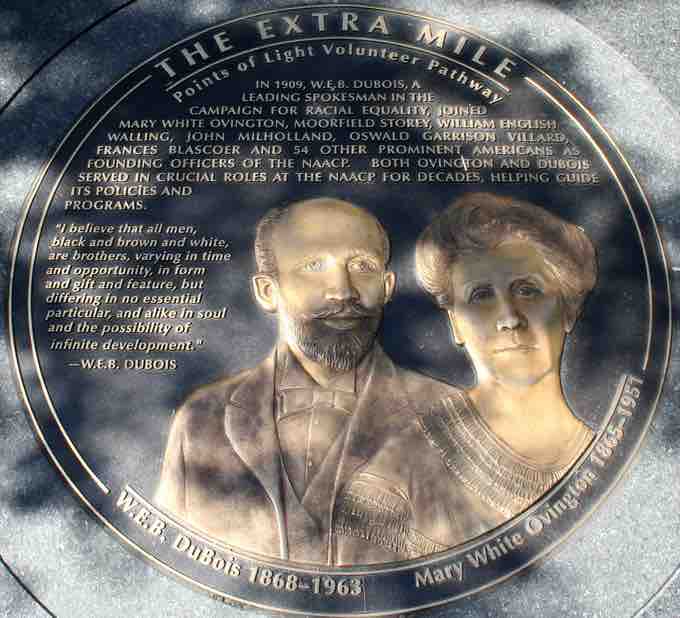Organizing for Equality: The NAACP
At the beginning of the 1900s the conditions for people of color, and particularly Black people in the US were incredibly unequal. Most Black people in the US were descendants of people who had lived in slavery in the US, and particularly in the South they experienced legal segregation, limitations on civil rights and liberties, and high rates of violence including lynching. During this period several groups began organizing, particularly around defending rights won under the thirteenth, fourteenth and fifteenth amendments. The NAACP (National Association for the Advancement of Colored People) was one of these groups.
W.E.B. Du Bois and the Niagara Movement
W.E.B. Du Bois was a scholar and activist committed to full civil rights for all people. His worked extended beyond the US, and he was also a Pan-Africanist and supported anti-colonial actions in Africa and Asia.
In 1905 Du Bois along with William Monroe Trotter convened the first meeting of the Niagara Movement in Niagara Falls in Ontario. This group of Black activists and scholars called for full civil liberties and an end to racial discrimination. Their approach contrasted with other groups at the time calling for more gradual reform.
The NAACP
In 1909 the NAACP formed, the fist call for a meeting was send out by a group of white liberals appalled by the continued violence committed against Black people in the US . W.E.B. Du Bois was one of a small group of Black participants in the first meeting, and his focus on defending the rights granted in the thirteenth, fourteenth and fifteenth amendments and eliminate race prejudice were adopted by the group.

The NAACP
W.E.B. Du Bois and Mary White Ovington were two of the founding officers of the NAACP.
The NAACP focused on recruiting members and local organizing. Branch offices were established in cities such as Washington DC, Kansas City MO, Detroit MI, and Boston MA. by 1919 they had tens of thousands of members and hundreds of local chapters.
In the early years the NAACP campaigned vigorously against lynching, voter suppression laws, for education rights, and blocked the nomination of a segregationist Supreme Court Judge. During the great depression the NAACP moved to organizing around the disproportionate impact of the depression on Black workers, and worked with willing unions to help secure jobs.